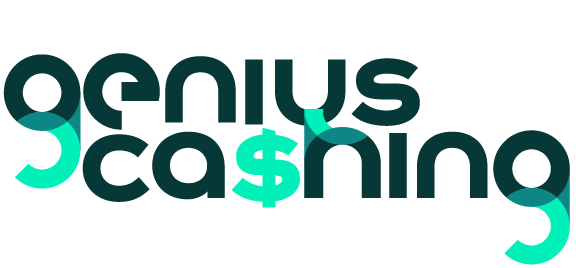Understanding the Language of Benefits: Legal Terms That Matter

Anúncios
Understanding the Language of Benefits is crucial for anyone navigating the complex world of government aid.
Whether you’re applying for Social Security, Medicaid, or unemployment assistance, the legal jargon can feel like a foreign dialect.
This blog post demystifies key terms, empowering you to confidently engage with these programs in 2025. With rising costs and shifting policies, knowing these terms isn’t just helpful it’s essential for securing your rights.
Let’s dive into the legal lexicon that shapes access to government benefits, offering clarity and practical insights to guide you.
Government benefits are lifelines for millions, yet their legal frameworks often intimidate. In 2025, as economic pressures mount, understanding these terms ensures you don’t miss out on deserved support.
Anúncios
From eligibility criteria to appeal processes, the language defines your path. This post breaks down critical terms, using real-world examples and actionable advice.
By mastering this vocabulary, you’ll transform confusion into confidence, making informed decisions about your benefits.
Why Legal Terms Matter in Government Benefits
Legal terms in government benefits aren’t just bureaucratic jargon; they shape access and outcomes. Misunderstand these, and you risk denied claims or lost opportunities.
For example, knowing “means-tested” can clarify if your income disqualifies you from Medicaid. These terms carry weight, determining eligibility and obligations in programs like SNAP or SSI.
In 2025, policy changes, like updates to Social Security’s cost-of-living adjustments, highlight the need for precision.
++ How to Use a Business Mentor to Unlock More Public Funding
Misinterpreting “substantial gainful activity” could jeopardize disability benefits. Clear terms guide you through applications, ensuring you meet criteria without costly errors. Knowledge here is power, unlocking your rightful support.
Consider Jane, a single mother applying for TANF. Unfamiliar with “work participation requirements,” she nearly lost aid by missing mandatory job training.
Understanding these terms upfront could have saved her stress. Legal literacy prevents such pitfalls, aligning your actions with program rules.

Key Legal Terms You Need to Know
Understanding the Language of Benefits starts with grasping core terms that define eligibility and processes.
Terms like “entitlement” distinguish non-discretionary programs, like Medicare, from discretionary ones, like housing vouchers. Knowing this difference helps you anticipate funding stability and application rigor.
Another critical term is “administrative appeal,” your recourse if benefits are denied. In 2025, the Social Security Administration reports 1.2 million appeals annually, underscoring its importance.
Filing correctly can overturn unfair decisions, preserving your aid. Familiarity with “categorical eligibility” also streamlines applications for programs like SNAP, bypassing income tests for certain groups.
Take John, a veteran navigating VA benefits. He misunderstood “service-connected disability,” delaying his claim. Clear definitions would’ve expedited his approval.
Also read: How to Calculate the “True Value” of Government Assistance
These terms aren’t abstract they directly impact your ability to secure and maintain benefits, making them essential to learn.
Mastering terms like “overpayment recovery” is equally vital. If the government seeks repayment for excess benefits, knowing your appeal rights can reduce financial strain.
In 2025, agencies are tightening overpayment policies, so understanding these rules protects your finances. Clarity in terminology empowers you to advocate effectively.
Decoding Eligibility and Application Terms
Eligibility terms are the gatekeepers of benefits, and Understanding the Language of Benefits helps you unlock them. “Means-tested” programs, like Medicaid, evaluate income and assets. In 2025, Medicaid’s income thresholds vary by state, so checking local rules is critical to qualify.
“Non-financial eligibility” factors, like age or disability status, also matter. For Social Security Disability Insurance (SSDI), “insured status” requires sufficient work credits.
Misjudging this can halt your application. Knowing these terms ensures you gather the right documentation, streamlining the process.
Imagine Sarah, applying for unemployment benefits. She didn’t grasp “base period,” the timeframe for calculating eligibility, and submitted incomplete wage data.
Her claim stalled. Familiarity with such terms prevents delays, ensuring timely aid. Always verify program-specific criteria to avoid setbacks.
Read more: The Benefits Cliff: How Small Income Increases Can Cost You Big
Another key term is “redetermination,” the periodic review of eligibility. For SSI, failing to report income changes during redetermination can trigger penalties.
Staying proactive with these requirements maintains your benefits. In 2025, digital tools like SSA’s online portals simplify reporting, but you must understand what’s needed.
| Term | Definition | Program Example |
|---|---|---|
| Means-Tested | Benefits based on income/assets | Medicaid, SNAP |
| Non-Financial Eligibility | Criteria like age, disability, or residency | SSDI, Medicare |
| Base Period | Timeframe for calculating work/income eligibility | Unemployment Insurance |
| Redetermination | Periodic review to confirm ongoing eligibility | SSI, TANF |
Navigating Appeals and Disputes
When benefits are denied, Understanding the Language of Benefits becomes your shield. “Administrative appeal” is your first step to challenge denials.
In 2025, the process varies by program Social Security appeals go to Administrative Law Judges, while Medicaid appeals may involve state agencies.
“Fair hearing” is another critical term, offering a formal review of denials. For example, SNAP applicants can request hearings to contest eligibility decisions.
Knowing deadlines often 90 days prevents missed opportunities. Timely action can reverse unfavorable outcomes, restoring your benefits.
Consider Maria, whose SSI claim was denied due to an error in reported assets. By requesting a “reconsideration,” she corrected the mistake and secured approval.
Without this knowledge, she’d have lost vital support. Legal terms guide you through disputes, ensuring fairness.
Another term, “overpayment,” signals the government’s claim for excess payments. In 2025, SSA’s stricter recovery policies affect thousands.
Understanding “waiver requests” can halt repayment if errors weren’t your fault. These terms empower you to protect your financial stability during disputes.
The Role of Advocacy in Benefits Access

Advocacy transforms Understanding the Language of Benefits into action. “Authorized representative” lets someone, like a lawyer, act on your behalf.
In 2025, community organizations increasingly offer free advocacy for complex programs like SSDI, easing the burden of legal jargon.
“Due process” ensures fair treatment in benefits decisions. Knowing your right to clear notices and hearings strengthens your case. For instance, a 2023 GAO report found 30% of SNAP denials lacked clear explanations, highlighting the need for advocacy to demand transparency.
Picture Tom, a retiree struggling with Medicare enrollment. His advocate clarified “initial enrollment period,” preventing penalties for late signup.
Advocacy bridges the gap between complex terms and real-world outcomes, ensuring you’re not shortchanged by bureaucracy.
Legal aid groups also help decode “conditional eligibility,” where temporary benefits apply during appeals. This knowledge can sustain you while disputes resolve.
In 2025, digital advocacy platforms, like Benefits.gov, make finding support easier, but you must know the terms to ask the right questions.
Staying Updated in a Changing Landscape
The benefits landscape shifts constantly, and Understanding the Language of Benefits keeps you ahead. Terms like “cost-of-living adjustment” (COLA) affect Social Security payments. In 2025, SSA announced a 2.5% COLA, impacting millions. Knowing this helps you budget effectively.
“Program integrity” initiatives, aimed at reducing fraud, introduce new compliance terms. For example, SNAP’s 2025 verification rules demand precise income reporting.
Staying informed prevents accidental violations that could suspend your benefits. Regular updates from agencies like CMS are key.
Think of benefits like a river: terms are the map guiding you through its currents. Without them, you’re adrift. Checking sources like SSA.gov or Benefits.gov ensures you’re current.
In 2025, mobile apps like MySocialSecurity simplify tracking, but understanding the terms unlocks their full potential.
Policy changes also redefine terms like “essential health benefits” under Medicaid. In 2025, expanded mental health coverage reflects growing needs.
Knowing these updates helps you maximize benefits. Subscribing to agency newsletters or joining advocacy groups keeps you informed and prepared.
Practical Tips for Applying Your Knowledge
Knowing legal terms is only half the battle; applying them is key. Start by reviewing program glossaries on official sites like SSA.gov. These clarify terms like “earned income” for tax credits, ensuring accurate applications. In 2025, digital tools streamline this process.
Organize documents around key terms. For Medicaid, gather proof of “household size” and income. This prevents delays.
For example, Lisa’s SNAP application succeeded because she cross-checked “asset limits” beforehand. Structured preparation turns knowledge into results.
Ask yourself: Are you ready to navigate benefits with confidence? Use free resources like Legal Services Corporation’s 2025 guides for low-income applicants.
They break down terms like “categorical exclusion,” simplifying complex rules. Knowledge, paired with action, secures your benefits.
Engage with community workshops or online webinars. In 2025, organizations like AARP offer virtual sessions on terms like “Medicare Advantage.”
These clarify plan options, helping you choose wisely. Combining learning with practical steps ensures you’re not just informed but empowered.
Frequently Asked Questions
What does “means-tested” mean for government benefits?
It refers to programs evaluating income and assets to determine eligibility, like Medicaid or SNAP. Check program guidelines for specific thresholds.
How can I appeal a denied benefit claim?
File an “administrative appeal” within the program’s deadline (often 90 days). Request a “fair hearing” for a formal review if needed.
Why is “redetermination” important?
It’s a periodic eligibility review. Failing to report changes, like income, can suspend benefits. Stay proactive with updates via agency portals.
This post equips you to navigate government benefits with confidence. By mastering Understanding the Language of Benefits, you turn legal jargon into a tool for empowerment. Stay informed, advocate wisely, and secure the support you deserve in 2025.
